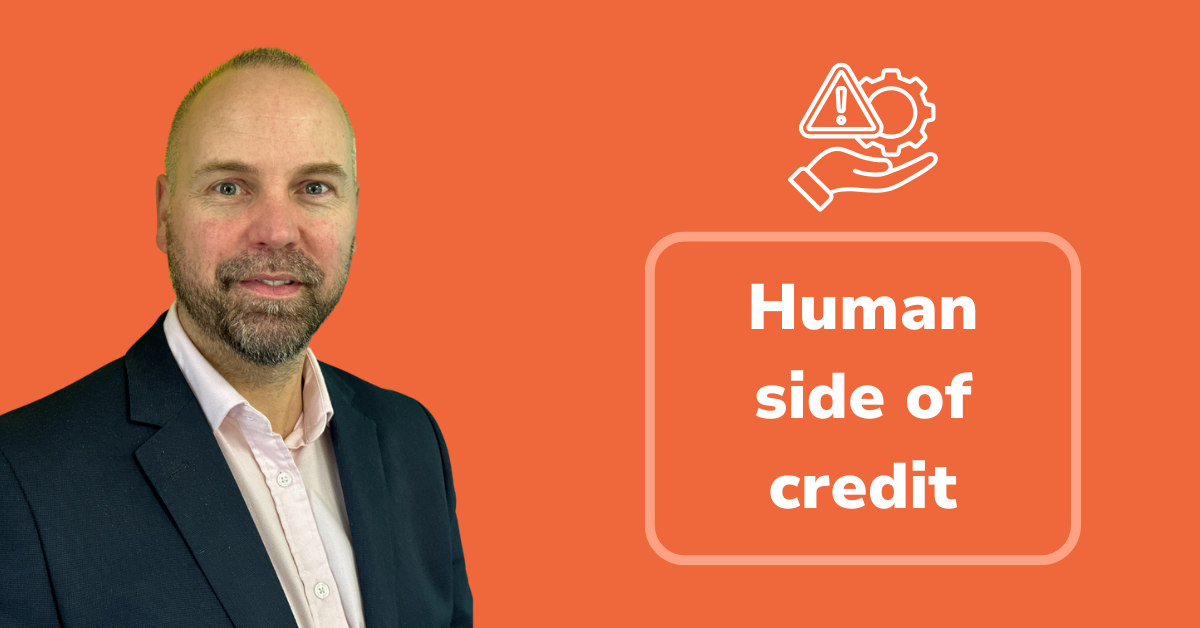Fresh out of university, I joined Northern Rock — the pride of the Northeast of England. It was more than a job. It was a foundation.
"You never forget the first time someone queues outside your branch, desperate to withdraw their savings. Especially when you're the one unlocking the door.”
I learned the full spectrum of frontline banking: sales, savings, customer service, mortgage and insurance advice. But more than that, I learned how to work with people — how to listen, how to earn trust, and how to solve problems with care. It was a true local bank with national reach, and we were proud to be part of it.
"Five years later, that pride was tested in ways none of us expected.”
The credit crunch hit. Northern Rock became the first UK bank in over a century to suffer a public run. I still remember the long lines outside the branch, the early morning calls, and the quiet panic of people who didn’t know if their savings were safe. It was humbling, disorienting — and unforgettable.
But through the uncertainty came something stronger. We showed up. We helped customers navigate fear with facts, and pressure with empathy. And amid the chaos, lifelong friendships were forged. One of those colleagues — someone who saw it all with me — stood beside me this April as best man at my wedding. Neither of us live in Newcastle anymore, but the bond we built during that storm has never wavered.
From fallout to focus: Embracing collections and lifelong learning
In the aftermath, I pivoted into the world of collections — an area I’d touched during my time managing arrears and mortgage defaults in banking, but never explored in depth. At first, I underestimated its complexity. I quickly discovered that effective collections isn’t about chasing debt; it’s about supporting people through difficult moments, protecting business continuity, and creating respectful pathways to recovery. Fast forward to today, and the profession has evolved dramatically. With SaaS platforms leading the way, AI and machine learning are now embedded in everyday collections activity.
That shift also reignited my appetite to learn. Under the guidance of Kurt Obermaier, then CEO of the Credit Services Association, I completed the CSA Diploma in Debt Collection — graduating with distinction and placing second nationally. (A fact my friends don’t let me forget. Mainly because I won’t let them.)
The qualification did more than build technical knowledge — it sparked confidence. I started to see credit not as a transactional function, but as a structured, skilled profession with real purpose and economic impact.
Credit meets compliance: High court enforcement and the FCA era
From there, I stepped into enforcement and legal recoveries. High Court actions, regulated debt, business disputes — it was frontline credit, with pressure dialed up to eleven.
One standout case involved acting for a City-based law firm on behalf of a UK airport authority. A national airline had accrued substantial unpaid airport taxes and wrongly assumed its international profile placed it beyond reach. We secured a High Court writ and coordinated enforcement to coincide with their presence at a major UK airport. The risk of asset seizure — including ground equipment — led to immediate engagement and full settlement within days.
It was a clear example of how effective commercial enforcement relies not just on legal authority, but on precision, timing, and reputational awareness.
I worked closely with firms navigating the early waves of FCA regulation, helping them manage risk, improve governance, and stay compliant in a fast-changing landscape. I saw firsthand how good credit management could be a stabilizing force for companies under pressure — and how poor decisions could expose them to reputational, operational, and financial harm.
That time cemented a belief I still hold today: credit is not just a risk discipline — it’s a reputational one. It must be proactive, not reactive. Strategic, not just operational.
What great teams really get right
At CICM, I’ve been lucky enough to work with hundreds of credit professionals — from utilities to retailers, SMEs to FTSE 100s. Through our CICMQ accreditation program and corporate partnerships, I’ve seen what sets top-performing teams apart.
Spoiler alert: it’s not just systems or targets. It’s culture.
The best credit teams lead with clarity and confidence. They embed good policy into the DNA of the business. They challenge poor practice, invest in their people, and make credit visible at board level. They don’t just collect cash — they shape customer journeys, protect margin, and enable growth.
"The results speak for themselves. Teams that embrace this approach consistently improve DSO, reduce aged debt, and create more stable, predictable cash flow. A strong credit culture also leads to fewer disputes, quicker resolutions, and better relationships with both customers and commercial stakeholders.”
As one finance director put it to me: “We don’t do collections. We do prevention.” That mindset is everything.
From quiet contributor to public voice
Believe it or not, I didn’t always enjoy public speaking. Like many, I once let nerves get the better of me and found ways to sidestep the spotlight. But I always believed in putting my best foot forward — even when it felt uncomfortable.
Over time, that changed. I now host webinars, chair panel discussions, and speak regularly at conferences. What shifted was my perspective: I realize the credit profession is full of unsung heroes — smart, strategic thinkers doing brilliant work quietly. I wanted to help give those stories a voice.
Whether it’s a podcast episode, a training session, or a keynote stage, I’ve come to see speaking not as a performance, but as a platform for service. And that’s made all the difference.
Looking forward: Investing in the future of credit
Credit and collections are no longer back-office functions — they’re strategic pillars. In an age of AI, automation, and rising risk, the credit professional is more important than ever.
That’s why I remain committed to mentoring, training, and building platforms that elevate the profession. We need more confident, capable credit leaders. More innovation. More collaboration. And more pride in the value we deliver.
If the crisis taught me one thing, it’s this: when the systems fall, people carry the weight. Let’s build credit teams that are ready — technically, emotionally, and culturally — for whatever comes next.
"The storm passed. The lessons stayed.”
Final thoughts: Resilience, relationships, reinvention
The next generation of credit leaders will need all three — technical expertise, emotional intelligence, and a willingness to adapt. These qualities will define the teams that don’t just withstand disruption, but thrive through it.
So let’s keep investing. Let’s keep connecting. And let’s be proud of a profession that doesn’t just protect cash flow — but drives confidence, trust, and sustainable growth. Let’s make sure they’re ready.
Thank you for reading.
Author profile
Luke Sculthorp FCICM
Fellow of the Chartered Institute of Credit Management and Vice Chair of CICM Yorkshire. Luke has held senior roles across banking, legal recoveries, enforcement, and credit compliance. He now leads strategic partnerships for CICM, supporting credit teams across the UK and internationally.




